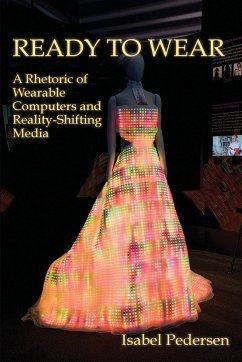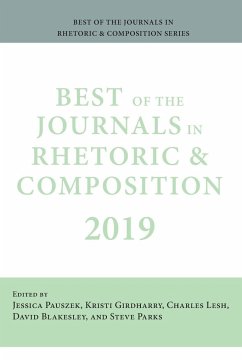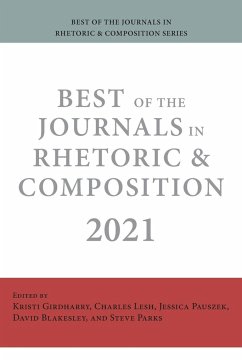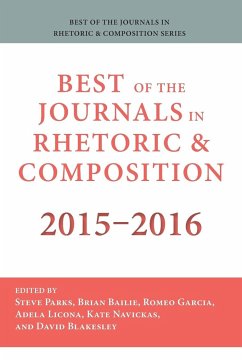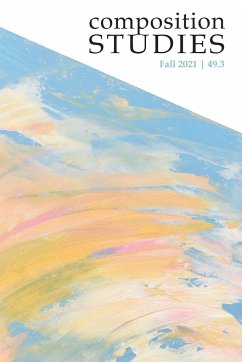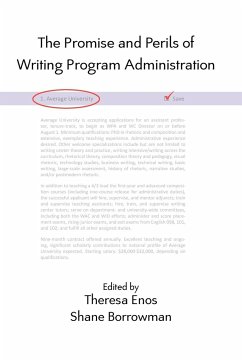
Writing in the Clouds
Inventing and Composing in Internetworked Writing Spaces
Versandkostenfrei!
Versandfertig in 1-2 Wochen
65,99 €
inkl. MwSt.

PAYBACK Punkte
33 °P sammeln!
Writing in the Clouds: Inventing and Composing in Internetworked Writing Spaces is an intensive examination of the profound consequences of contemporary writing technologies for the act-and art-of composition. In the 1980s and 1990s, the increasing adoption of computers as digital composing tools prompted scholars to re-examine the roles technology might play in written composition. This book elaborates those consequences at a time when internetworked writing has supplanted digital composition. Our centuries-long relationship with paper as the default space for certain types of written composi...
Writing in the Clouds: Inventing and Composing in Internetworked Writing Spaces is an intensive examination of the profound consequences of contemporary writing technologies for the act-and art-of composition. In the 1980s and 1990s, the increasing adoption of computers as digital composing tools prompted scholars to re-examine the roles technology might play in written composition. This book elaborates those consequences at a time when internetworked writing has supplanted digital composition. Our centuries-long relationship with paper as the default space for certain types of written composition has been thrown into question. The advent of ebooks and their sharply spiking popularity is one indication of the ongoing technological and cultural shift. Perhaps more important is the relative affordability of tablet computers and their increasingly widespread acceptance and use in roles that formerly required paper-based writing. For years, the notion of the paperless office has been an ironic joke. Paper consumption soared after the adoption of desktop computers. Now portable and tablet computing appear to be contributing to a dramatic decline in US per capita paper consumption. Today's writers are increasingly aware of the likelihood that their compositions may never be printed. When they are certain that their works are being developed for digital delivery, they cannily adapt their writing to exploit the affordances of internetworked digital spaces. Writing in the Clouds offers history, analysis, and a set of keywords to help readers better understand these changes in their particularity and help them prepare for what's next as writers embrace the expansive opportunities of cloud-based writing spaces. JOHN LOGIE is Associate Professor of Rhetoric and Director of Graduate Studies for the Rhetoric and Scientific & Technical Communication Programs for the Department of Writing Studies at the University of Minnesota-Twin Cities. His 2006 book Peers, Pirates, and Persuasion: Rhetoric in the Peer-to-Peer Debates addressed questions of information policy and persuasion. His scholarship has also been published in Rhetoric Society Quarterly, Rhetoric Review, College English, First Monday, Computers and Composition, and a number of edited volumes. These articles reflect his sustaining interest in internet studies, rhetorical invention, visual rhetoric, and challenges to the body of laws known collectively as "intellectual property."




